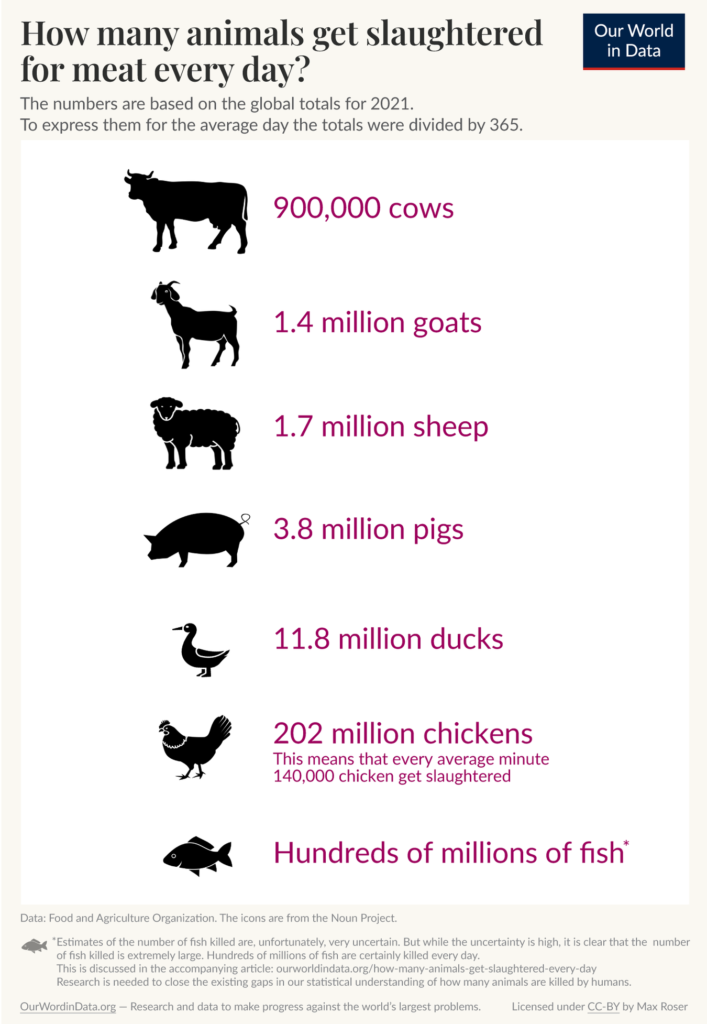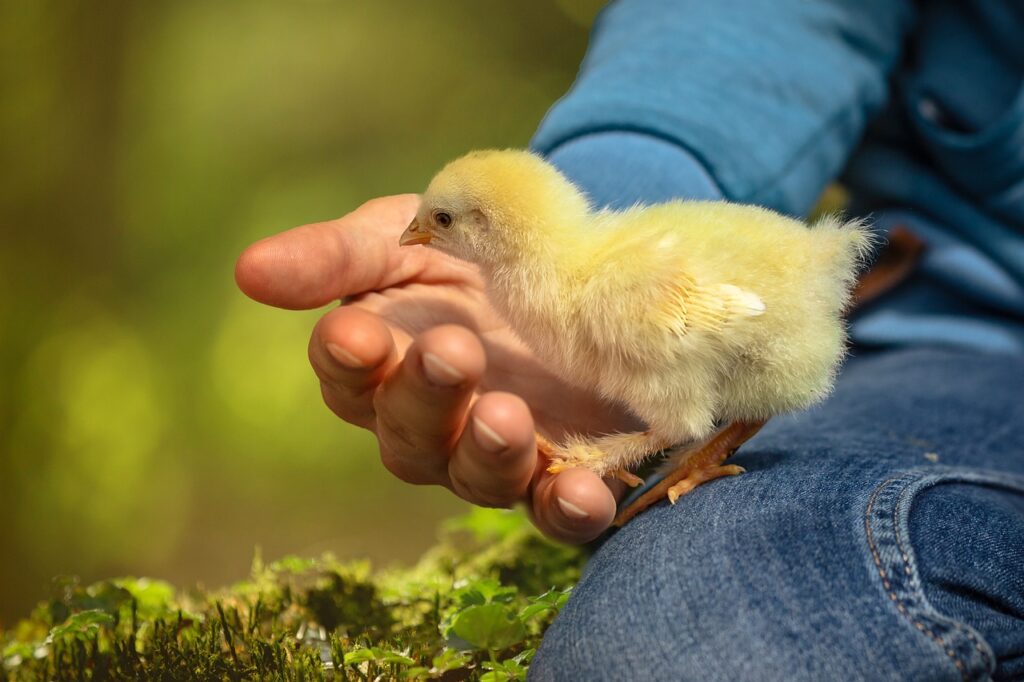People have hard lives, and going vegan sounds like a big change. Even if a person can accept that the core concepts of veganism are ideal; the reduction of cruelty and environmental damage, they often believe that going vegan themselves will not make a difference.
Quite honestly, I don’t blame them. The consumption heavy state of society has made it hard to see the impact of your individual decision. It can be easy to feel like what you do doesn’t matter, kind of like voting.
In order to illustrate just how impactful a single person going vegan can be, we should start with none other than… individuals.
The Individual Impact of Veganism
Take your dog or cat. If you don’t have one, your childhood pet or a close friend’s companion. Consider the individuality of that animal, the intelligence, child-like curiosity, and personality it has. Consider how you feel when you watch a video of a puppy being harmed, or a cat being rescued and nursed back to health. We feel empathy and emotion for these animals, because we recognize the unjust pain and suffering they go through. We wish nothing more but simple happiness for them. We curse the situations and humans that put those animals in an awful state.
We then go and commit worse atrocities with our forks and knives.
It’s easy to justify the animals we slaughter for food by saying “it’s different,” or “it’s necessary.” But we live in a time where, for the vast majority of the world, it absolutely is not.
If we want to understand the individual impact of veganism, lets look at the example of a pig.
Pigs have been shown to have the intelligence roughly equal to a human three year old. For reference, the canine companions we call man’s best friend have roughly the intelligence of a two year old. We take these highly intelligent creatures and we slaughter them in the most efficient, cruel way possible, to produce ham and bacon. Worldwide, we kill more than 4 million pigs per day.
4 million is a large number that can feel abstract — lets break it down and understand how many animals the average american consumes.

In 2020, the U.S Department of Agriculture reported that 9.76 billion animals were slaughtered in the United States that year. There are ~330 million non-vegan americans in the U.S, making the average american responsible for the slaughter of roughly 30 animals per year. This number does not even include the fish count, which is ~55 billion per year in the U.S.
Your choice matters. Would you bloody your hands every two weeks to kill a chicken, a cow, a pig, or a lamb? Would you yourself raise a cow through awful conditions, only to give it a merciless ending?
Your choice, every single day, is a literal decision between life or death.
But I didn’t kill these animals, you might say. Someone else did, they were already dead, I just bought them. And that’s true, you didn’t kill this specific pig. But the money you handed over to the supermarket is guaranteed to go straight towards slaughtering the next pig. You might be paying for the death of a pig you’ll eat in half a year.
Voting with Your Money
The easiest way to think of the monetary impact of choosing veganism is to consider it like voting with your money. Every decision you make — to pay for animal suffering or to purchase a plant alternative, is a vote towards the world you want to see.
Take a fast food chain for example. They don’t care about what food they are selling. They will sell whatever will make them the most money.
Say you go in and purchase a $10 burger. That $10 you spent is then recorded as gross revenue, the demand is recorded, and the company is signalled to produce the next burger — slaughtering a cow to do so.
What if, instead, you decide to buy a $10 plant-based burger? The impact of this is two fold. First, the animal burger loses $10 in revenue which they are used to getting, signalling the company to produce less burgers in the future, as they do not want to lose money. At the same time, the company notes that there is a growing demand for plant-based options, and that they will need to invest into it in order to retain your business.
Look at Taco Bell for example. Over the past 10 years, the percentage of vegetarian sales doubled from 6 to 12%. Their response? A dedicated “Veggie mode,” clear labeling of vegan products, and as of 2023 — vegan nacho fries and a vegan crunchwrap supreme.
Every choice to consume or not consume animal products matters, and has a rippling effect beyond it’s direct contribution. More people in the future will be open to veganism, because they now know they can still get nacho fries at Taco Bell.
Creating a Future For Our Children to Live In
I will not make the argument that being vegan is super easy. For some people it isn’t, and the social challenges can be the hardest part when the people around us are not understanding or supportive.
Even if the logic lines up, sometimes there needs to be an argument beyond just the facts. To me, the question I ask myself is: What kind of world do I want to be a part of building?
Do I want it to be a world where billions of innocent animals are senselessly slaughtered? Or do I want it to be a world which teaches that even the smallest, most defenseless life, matters and should be protected.
If we taught children that a chicken that can’t talk back should still be protected, how then might they apply that world view to other humans?
I believe that it will make the world a much kinder place, both for the animals and for ourselves.
Tip: Curious about being vegan and worried about protein? Check out my complete guide to vegan protein
Meet Nathan
Nathan loves to learn and share. A lifelong vegan, he spends his time working towards the goal of a cruelty-free world. He graduated from UC Berkeley with a B.S in economics, and wants to inspire conscious consumption in the food industry.
You can find him obsessing over volleyball in San Francisco.



